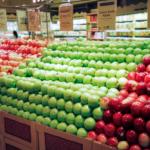Last month, the United States Department of Agriculture approved the sale of chicken grown from animal cells. The USDA issued approvals to two companies allowing them to sell the products which are known as “laboratory grown,” “cell cultivated,” or “no kill” meat. The meat will initially be sold via several restaurants and then eventually make its way to supermarket shelves. This approval launches a new era of meat production that will minimize the environmental footprint of feeding, grazing, and watering animals as well as eliminate harm to animals. Cultured meat may also offer a potential solution to feeding the world’s growing population.
The two companies received a grant of federal inspection and label approval from the USDA following the earlier U.S. Food and Drug Administration determination that the cultured meat products are safe for human consumption. Regulators noted that the products will be considered meat, not meat substitutes which are made from plant proteins and other ingredients. The cultured meat is made in bioreactors using cells that can come from animal biopsies or even a feather in the case of chicken.
The approval of cultured meats represents a significant moment in food and agriculture for the United States and other countries. Cell cultured meat was first permitted for sale in Singapore and may be offered in other markets soon. Globally, over one hundred companies are currently focused on growing meat from cells including lamb, pork, chicken, and beef. One major challenge facing cultured meat is cost. Cultured meat is much more expensive to produce than traditional slaughtered meat and cannot yet be produced in scalable commercial quantities.
Changing the way food companies meet and maintain regulatory compliance with innovative tools and expert-verified data.
FoodChain ID’s regulatory data and tools optimize the research process, providing the expert-verified data your regulatory and compliance teams need in a fraction of the time.
- FoodChain ID’s Regulatory Library by Decernis is a global regulatory reference database, providing instant access to regulations to determine the compliance status of products and substances. Learn more.
- FoodChain ID’s Regulatory Assessment by Decernis simplifies complex global regulations into an easy-to-identify compliance management dashboard providing an effective and automated way to manage and control the compliance of products. Learn more.
- FoodChain ID’s Regulatory Limits by BCGlobal is a suite of regulatory intelligence services providing pesticide and veterinary drug MRLs, contaminant limits and food additive regulations. Learn more.
- FoodChain ID delivers high-level subject matter expertise for consulting based on business needs, budget and timelines. Learn more.










